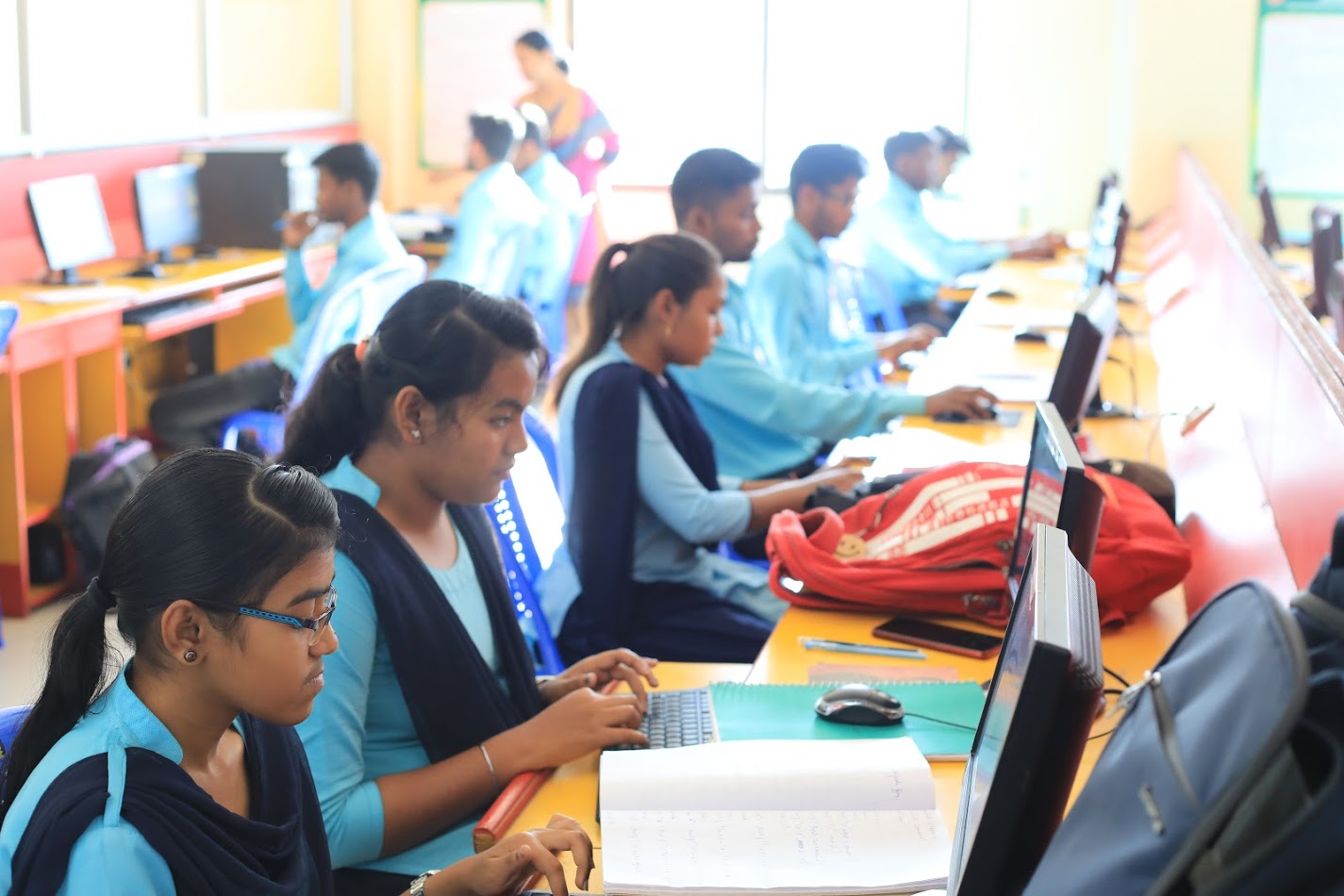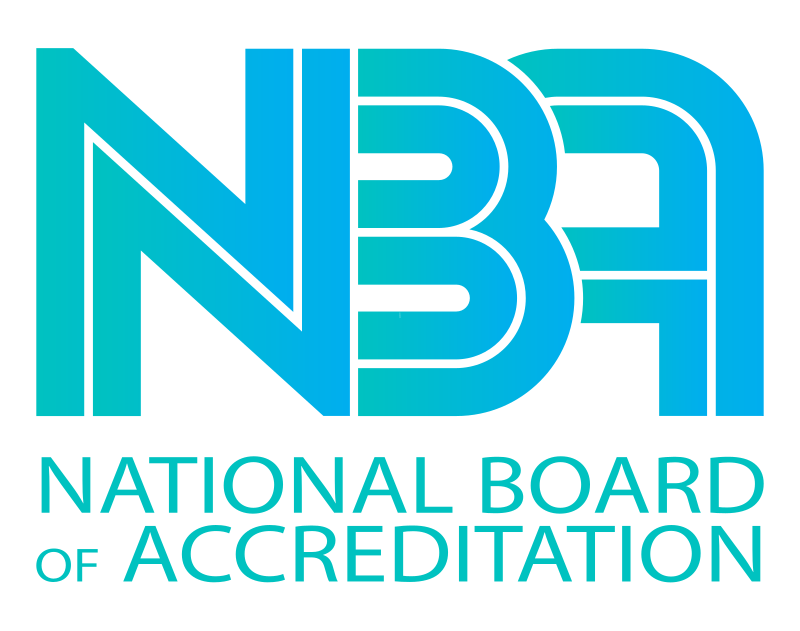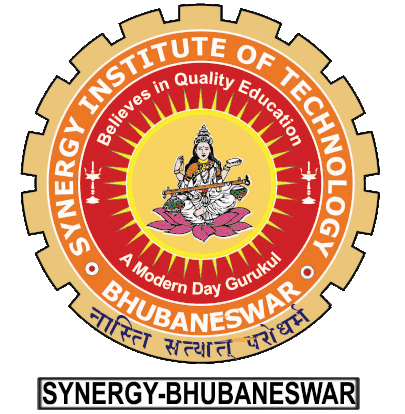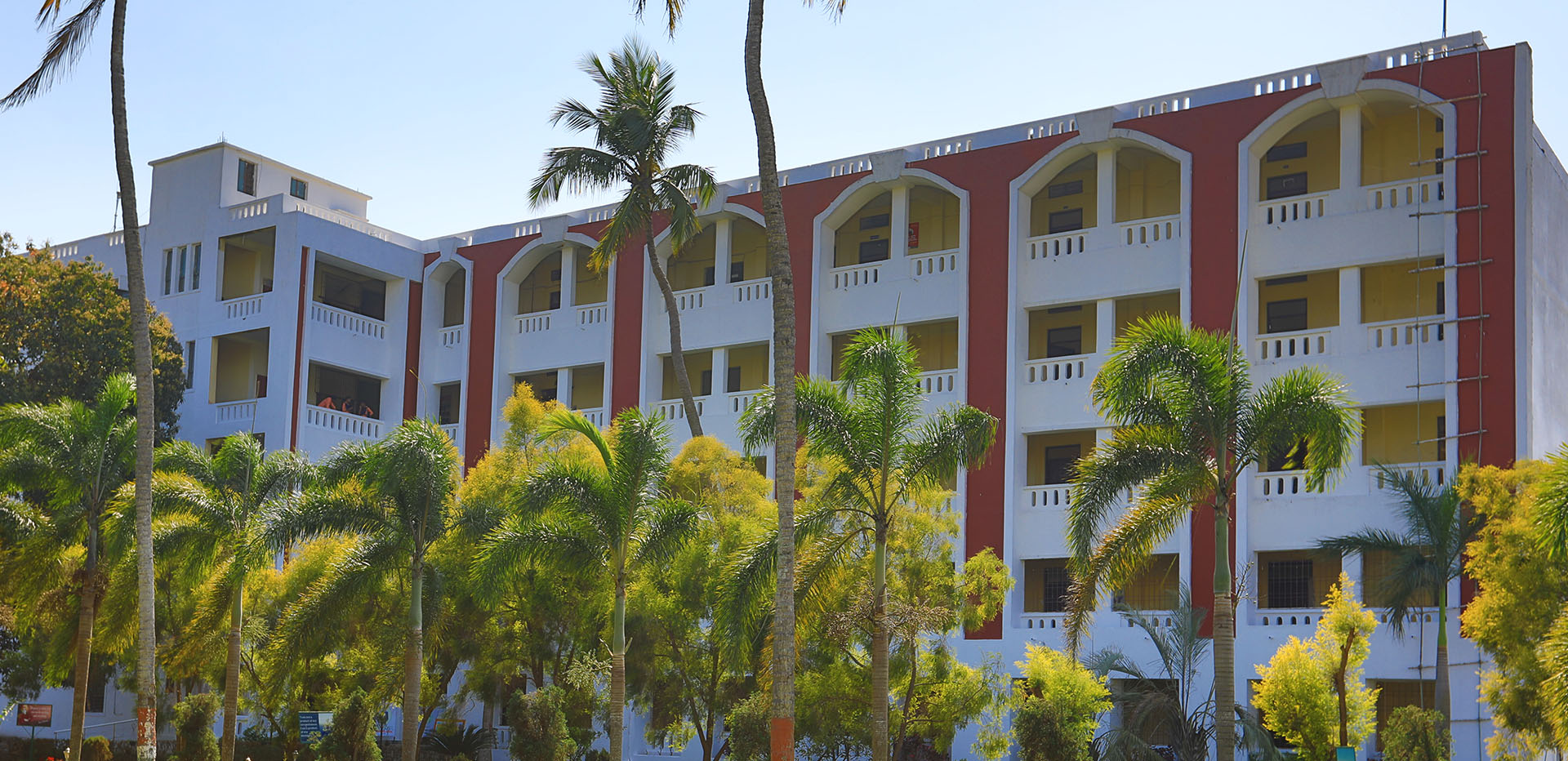
Computer Science & Engineering
Links:
- PEO & PSO
- OBE
- Faculty List
- Laboratories
- Industry Institute
- Scope And Objective
- Our Achievers
- Department Advisory Board
- Program Assessment Committee
- Course Outcomes
- CO, PO & PSO Mapping

Mrs. Tapasi Das
(HOD CSE)
Asst. Professor
COMPUTER SCIENCE & ENGINEERING
The Vision :
To build healthy academic ambiences align with front line research and quality teaching to cater for the cutting age technologies of the 21st century.
The Mission :
- To provide quality education in both theory and practice and train students to effectively apply this knowledge to amplify their potential for lifelong high-quality careers.
- To conduct research and subsequent innovations to solve real-world problems.
- To promote leadership, teamwork and ethical values among the students to help in their character building.
PROGRAMME EDUCATIONAL OBJECTIVES
PEO-1:Excellence in Computer Science and Engineering and entrepreneurship through compilation of the Knowledge from mathematics, engineering fundamentals and computation.
PEO-2:Capable to design innovative solution to real life problems those will be technically visible, economically viable and socially acceptable.
PEO-3:Implement the knowledge in establishing effective communication, organizing team work, and serving ethical responsibilities with a frame of mind towards lifelong learning.
PROGRAMME SPECIFIC OUTCOMES
PSO-1: Able to apply the knowledge gained during the course of the programme from mathematics, basics computing, basic science and social science in general and all computer science courses in particular to identify, formulate and solve complex engineering problems faced in industries and during research work with due consideration for the safety and needs of the society and environment.
PSO-2: Able to provide socially acceptable technical solutions to complex computer science engineering problems with the application of programming languages, software engineering skills and newly developed techniques in the field of computer society.
Highlights of the Department
Due to the increasing demand in the field of Computer Science. In this fully automated world, this course which is a complete blend of technical subjects seems to find its own place in providing the students with adequate knowledge and expertise.
Computer Science is the heart of the modern era of civilization. As computing technology became versatile and acquired a global dimension, SIT has all the ingredients necessary to curve out a successful Computer Engineer that can be measured up to any international standard of computer hardware and software engineer. The college has splendid AC state-of- the-art computer labs with 100% LAN connection and Internet facility.
The Department has eminent faculty members specialized in different areas. Our department has well established laboratories with good infrastructure, and qualified faculty members to impart enough practical knowledge to the students. Our aim is to shape up the students technically to face this modern world with sound knowledge of new technologies and efficiency.

Outcome Based Education (OBE)
Programme Outcomes
| POs | Highlight | Explanation |
|---|---|---|
| PO1 | Engineering knowledge: | Apply the knowledge of mathematics, science, engineering fundamentals, and an engineering specialization to the solution of complex engineering problems. |
| PO2 | Problem analysis: | Identify, formulate, review research literature, and analyze complex engineering problems reaching substantiated conclusions using first principles of mathematics, natural sciences, and engineering sciences. |
| PO3 | Design/development of solutions: | Design solutions for complex engineering problems and design system components or processes that meet the specified needs with appropriate consideration for the public health and safety, and the cultural, societal, and environmental considerations. |
| PO4 | Conduct investigations of complex problems: | Use research-based knowledge and research methods including design of experiments, analysis and interpretation of data, and synthesis of the information to provide valid conclusions. |
| PO5 | Modern tool usage: | Create, select, and apply appropriate techniques, resources, and modern engineering and IT tools including prediction and modeling to complex engineering activities with an understanding of the limitations. |
| PO6 | The engineer and society: | Apply reasoning informed by the contextual knowledge to assess societal, health, safety, legal and cultural issues and the consequent responsibilities relevant to the professional engineering practice. |
| PO7 | Environment and sustainability: | Understand the impact of the professional engineering solutions in societal and environmental contexts, and demonstrate the knowledge of, and need for sustainable development. |
| PO8 | Ethics: | Apply ethical principles and commit to professional ethics and responsibilities and norms of the engineering practice. |
| PO9 | Individual and team work: | Function effectively as an individual, and as a member or leader in diverse teams, and in multidisciplinary settings. |
| PO10 | Communication: | Communicate effectively on complex engineering activities with the engineering community and with society at large, such as, being able to comprehend and write effective reports and design documentation, make effective presentations, and give and receive clear instructions. |
| PO11 | Project management and finance: | Demonstrate knowledge and understanding of the engineering and management principles and apply these to one’s own work, as a member and leader in a team, to manage projects and in multidisciplinary environments. |
| PO12 | Life-long learning: | Recognize the need for, and have the preparation and ability to engage in independent and life-long learning in the broadest context of technological change. |
Scope And Objective
Computer Science department is one of the leading branches of Engineering. Since computer science being the order of the day, it is very much necessary for the young minds to get accustomed with the latest developments in the field of computer research. Moreover Computer Science being one of the most important sought branches in Industrial point of view, it would fetch high dividends for the students who take up Computer Science as their career course.
Focus Areas
Computer Science and Engineering is a versatile field focuses on areas like Mobile Computing, PDS, OOPS, SOFT COMPUTING, SECURITY, Fiber Optics etc
Job Opportunities
Computer Science Engineers have a bright future ahead of them as they are needed by almost all Industries in various cadres like Software Design, Development, Testing, Security, Quality control, Maintenance and Service and so on.
Most Software MNC's require students of this branch. Based on all the above aspects, our college is offering a B.Tech course inComputer Science with an intake of 120 students. The currently effectively functioning.
Department has developed 9 (Nine) state-of-the-art laboratories such as :
- BASIC COMPUTING LAB
- GRAPHICS & MULTIMEDIA LAB
- DATABASE LAB
- SYSTEM PROGRAMMING LAB
- ON-LINE APPLICATION LAB
- ORGANISATION & NETWORKING LAB
- INTERNET & WEB TECHNOLOGY LAB
- PROJECT LAB
- SOFTWARE ENGG. LAB

Department Advisory Board (2024-25)
- It consists of program coordinator, senior faculty members, and representatives of key stakeholders.
- Headed by Programme Coordinator, receives the report of the Program Assessment Committee and reviews the progress of the program.
- It analyses current and future issues related to the program.
- Prepares and recommends new or revised program objectives.
- Program Assessment Committee congregates once a year to review the program objectives.
| Sl. No. | Name | Designation |
|---|---|---|
| 1. | Dr. Ajay Kumar Swain | Director |
| 2. | Senior Faculty Members of the Department Mr. Sujeet kumar Nayak Mrs. Swikruti Dash |
|
| 3. | Dr. Ramesh Chandra Nayak Dr. Srinibash Swain Dr. Pankaj kumar Dash |
HOD, ME HOD, EE HOD, CE |
| 4. | Representatives from Industry Mr. Harsh Raval Dr. Vipul Vashist |
CEO, Cyber Dojo Pvt. Ltd, Ahmedabad CEO, Lagozen EduTech, New Delhi |
| 5. | Representatives from Academics Dr. Sarojananda Mishra Dr. Pradeepta Kumar Das |
Prof(CSE), I.G.I.T. , Saranga Asso.Prof(IT), V.S.S.U.T, Burla |
| 6. | Parent Representatives Mr. Sachidananda Behera Mr. Ramesh Ch Sahoo |
Parents |
| 7. | Alumni Representatives Mr. Rudranarayan Dash Ms. Nikita Mohanty |
Alumni |
| 8. | Student Representatives Ramiz Rahil Khan Ipsha Mohanty Debadatta Parida Smrutimedha Mishra Abhisek Patra Jasmin Nanda |
Students |
Program Assessment Committee
- Program Assessment Committee consists of Program Coordinator, Course coordinator of the Semester and faculty representatives.
- Headed by Program Coordinator, the committee monitors the attainment of PEO's.
- Assesses program effectiveness and proposes necessary changes.
- Prepares periodic progress reports on program activities for college administration.
- Encourages the faculty and students to attend workshops, develop working models, publish papers, and conduct research.
- Interfaces with students, faculty members, program coordinator, semester coordinators, and outside agencies in fulfilling program educational objectives.
- Committee congregates twice a year to review the program and submits a report to the Department Advisory Board.
| Sl. No. | Name | Designation |
|---|---|---|
| 1. | Dr. Biswaranjan Sarangi | Asso. Professor, CSE |
| 2. | Dr. Gyanendra Kumar Pallai | Professor, CSE |
| 3. | Mr. Sujit Kumar Naik | Asst. Professor, CSE |
| 4. | Mrs. Tapasi Das | Asst. Professor, CSE |
| 5. | Mr. Rashmiranjan Mohanty | Asst. Professor, CSE |



